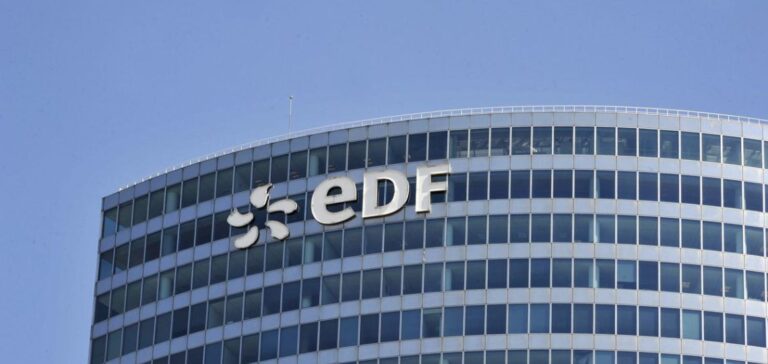The announcement of Luc Rémont’s replacement at the helm of Électricité de France (EDF) comes amid growing tension between the state-owned utility and energy-intensive industrial sectors. For several months, these industries have been warning the French government about the economic consequences of the imminent end of the Regulated Access to Historic Nuclear Electricity (Arenh) scheme and the expected increase in electricity costs.
A pricing strategy under pressure
The Chief Executive Officer of the Saint-Gobain group, Benoit Bazin, recently criticised EDF’s commercial approach, describing its pricing decisions as “a slap in the face to French industry.” He was referring to EDF’s announcement in early March to auction off electricity volumes, backtracking on a November 2023 commitment to offer long-term contracts at competitive rates to electro-intensive industries. Saint-Gobain, operating over 900 production sites globally, is among the affected companies.
This reversal has raised concern among manufacturers who rely on affordable electricity to sustain operations in France. Some actors, such as steelworks and paper mills, are considering scaling back activity or shifting production to off-peak hours to reduce energy costs.
A regulatory framework under scrutiny
Established in 2011, the Arenh scheme obliged EDF to sell up to 100 terawatt-hours of nuclear power annually at €42 per megawatt-hour. Imposed by the European Commission, the scheme aimed to introduce a degree of competition into the French electricity market. However, the fixed price was below EDF’s production cost, exacerbating the utility’s financial strain as it faces the task of financing a new nuclear programme involving six reactors.
Talks on a successor to the Arenh system, due to expire in December 2025, have reached a deadlock, increasing frustration among industrial clients. Energy and Industry Minister Marc Ferracci has stepped up visits to factories and held multiple meetings with sector representatives, stressing the need to guarantee pricing visibility to manufacturers.
Energy transition under economic constraint
Nicolas de Warren, President of the Union of Energy-Using Industries (Uniden), rejected the notion that Mr Rémont’s departure was a direct response to industrial pressure. He emphasised that the priority remained securing the estimated €70bn financing required for the nuclear programme, a figure far exceeding short-term commercial disputes.
A government source close to the matter told the press that the leadership change should not be interpreted as a sanction. The official position is that industrial development must align with energy strategy while reinforcing the nuclear sector.
A senior EDF executive, speaking anonymously, stated that despite “extremely positive” results for 2024, the scale of upcoming investments remains significant. He added that without sufficient revenues, EDF’s borrowing capacity could be constrained, jeopardising ongoing project implementation.






















